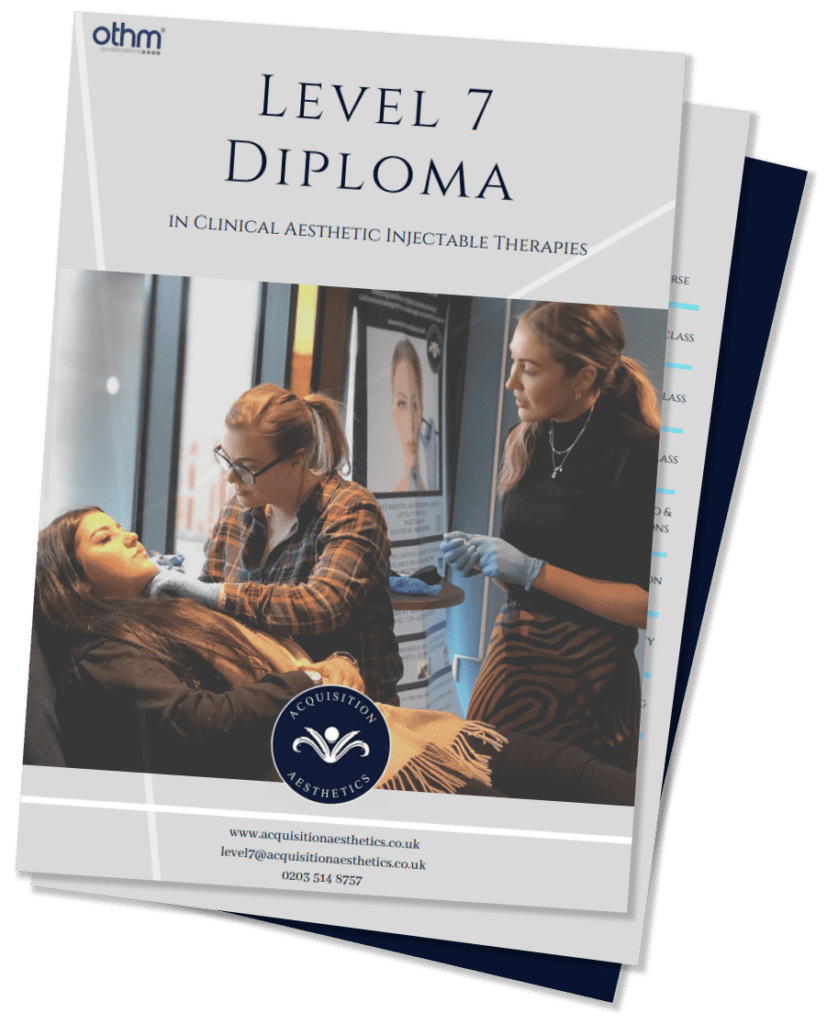For medically trained professionals in Scotland, transitioning to aesthetics can be an exciting and rewarding career move, especially given the growing popularity and profitability of aesthetics treatments in recent years. Aesthetics offers opportunities to utilise medical expertise in a different context, focusing on enhancing patients’ appearance and well-being.
However, before embarking on this journey, there are several essential considerations to ensure a successful transition. In this article, we will explore key factors to ponder before venturing into the field of aesthetics in Scotland.
Regulatory Requirements
Before starting an aesthetics practice, it is vital to familiarise yourself with the regulatory landscape in the UK. Ensure that you are compliant with the General Medical Council (GMC), General Dental Council (GDC), and Nursing and Midwifery Council (NMC) guidelines and the specific requirements set by the Joint Council for Cosmetic Practitioners (JCCP) and the British College of Aesthetic Medicine (BCAM) or British Association of Aesthetic Nurses (BACN). Understanding these regulations will help you navigate legal and ethical aspects of your practice.
Working in Scotland there is an additional layer of regulation that is not present in England or Wales. Since the 1st of April 2016, Health Improvement Scotland (HIS) has taken on the responsibility of regulating independent clinics in Scotland. This move ensures that any medical practitioner must operate from a HIS-registered location. The regulation encompasses both consultations and treatments. It’s imperative to note that it’s illegal for medical professionals to administer injections outside of a HIS registered site. Furthermore, having a registration application in progress doesn’t permit one to start services. It’s only after the HIS registration has been formally granted that a professional can commence their services.
The HIS regulation framework is divided into four distinct parts:
- Registration: Every service, irrespective of its nature, is required to undergo the registration process. This means every site or location a practitioner operates from needs registration. This includes diverse settings like a room at one’s home, a rented space in a salon, or an independent clinic. The registration fee is set at £3500, and it’s crucial to be aware that this fee is non-refundable. This stands even if the application is ultimately denied. Moreover, operating an unregistered clinic in Scotland is considered a criminal offense. From the date of payment, a complete application form will take a minimum of 3 months to be processed. However, in most cases, this process tends to take much longer. The application form itself is quite comprehensive, demanding full clinic policies, procedures, a detailed business plan, financial forecasting, and evidence of insurance. By the time of application, the site should be ready for HIS inspection. Importantly, even consultations can’t be initiated until the green light from HIS is received.
- Inspection: HIS holds the authority to inspect services and performs on-site visits at regular intervals. These inspections are rigorous and involve the review of the clinic site, interviewing clinic staff, and thorough scrutiny of all clinic policies and procedures. To ensure utmost compliance and standards, HIS conducts both announced and unannounced inspections.
- Complaints: HIS has established a mechanism allowing members of the public to file complaints. This ensures that any grievances or concerns about a service can be formally addressed.
- Enforcement: HIS doesn’t just stop at registration and inspections. They have the power to take corrective action against services that fail to comply with the National Care Standards.
To ensure continuous adherence to standards, there’s an ongoing oversight mechanism in place. Registered entities are required to pay an annual continuation fee of £1518 to retain their registration status.
Of note, clinics that operate as a part of NHS practice are exempt from the HIS regulations. This means that such clinics don’t need to apply for HIS registration. This exemption has specific implications for dentists in Scotland who cater to both NHS and private patients and are interested in expanding their services to include aesthetic treatments. Dentists who operate within such a dual framework—serving both NHS and private clientele—benefit from this exemption. They can seamlessly integrate aesthetic services into their practice without the need for HIS registration, provided their practice is already a part of the NHS.
Training, Qualifications, and Prescribing
Proper training and qualifications are fundamental for a smooth transition to aesthetics. Seek reputable training institutions that offer comprehensive courses on aesthetic treatments and procedures. Look for courses that include hands-on experience, evidence-based learning, and patient safety as core components. Obtaining certifications from recognised bodies will enhance your credibility and instil confidence in your patients. At minimum, you will require a foundation certificate in Botulinum toxin and fillers to start injecting and have adequate cosmetic insurance to practice.
There are crucially some specific considerations for non-prescribing clinicians in Scotland. The legal stance of Health Improvement Scotland (HIS) dictates that while nurses or nurse independent prescribers can’t order and stock prescription-only medicines autonomously, they are permitted to maintain stock as an integral part of clinic operations.
However, a significant development was announced by HIS in November 2022. This new directive stated that non-prescribing medical practitioners are now prohibited from performing toxin or dermal filler injections unless a prescriber is physically present at the site.
The rationale behind this decision is that while dermal fillers are not prescription-based, managing potential complications arising from their use necessitates prescription medications.
The decision to introduce this new directive arose from a concerning trend of a rising rate of complications and complaints associated with injectable procedures. This revised rule will be enforced for all new applications. Clinics that are already in operation have been provided a grace period, allowing them some time to adjust and prepare for this new standard.
Patient-Centered Approach
As an ethical clinician, it is essential to maintain a patient-centered approach. Honesty, empathy, and open communication will enable you to connect with patients, understand their concerns, and guide them towards suitable treatments. Take the time to really get to know your patients’ motivations, concerns, and aesthetic goals. Communicate honestly about treatment options, potential risks, and manage expectations. Developing a strong rapport with patients builds trust, leading to higher levels of patient satisfaction and repeat business. In aesthetics, ethical practice is paramount. Clinicians should never be over-treating or pushing unnecessary procedures on patients.
Business Considerations
Starting an aesthetic clinic can be capital intensive. Consider the startup costs associated with HIS-registration, training, membership fees, equipment, location, insurance, and marketing. Building a strong brand for your aesthetic practice is vital. Invest in a professional website, engage actively on social media, and showcase before-and-after photos (with patient consent) to attract potential clients. Word-of-mouth referrals and positive testimonials can significantly boost your clinic’s reputation and trustworthiness. Collaborating with experienced aesthetic professionals or seeking mentorship can be invaluable in navigating the business side of aesthetics.
Transitioning to aesthetics as a medical clinician in Scotland can open doors to a fulfilling and dynamic career that beautifully combines artistry, science, and business acumen. Remember, building a reputable aesthetics career takes time and dedication, but with the right mindset and commitment to excellence, you can thrive in this exciting and evolving field


